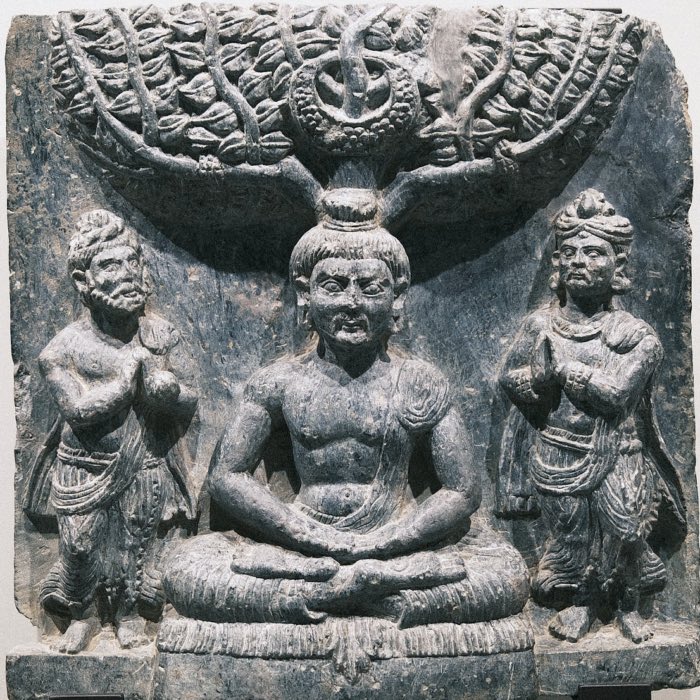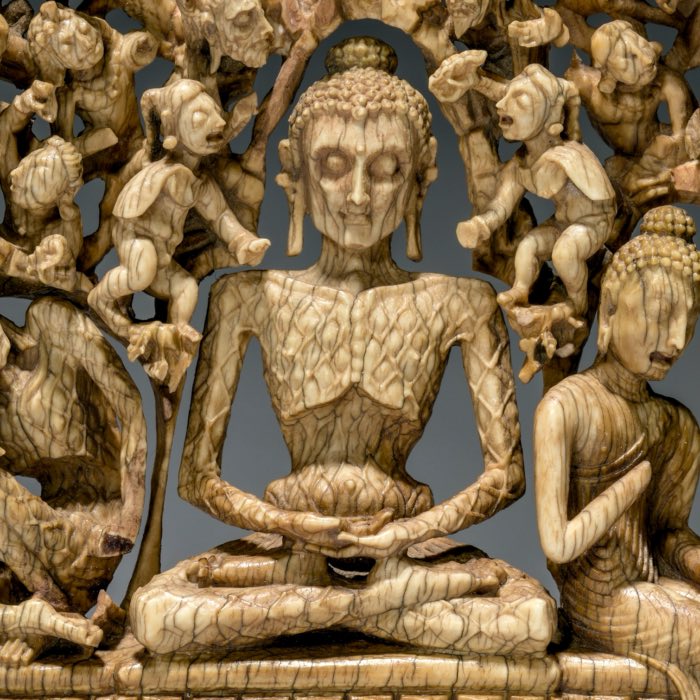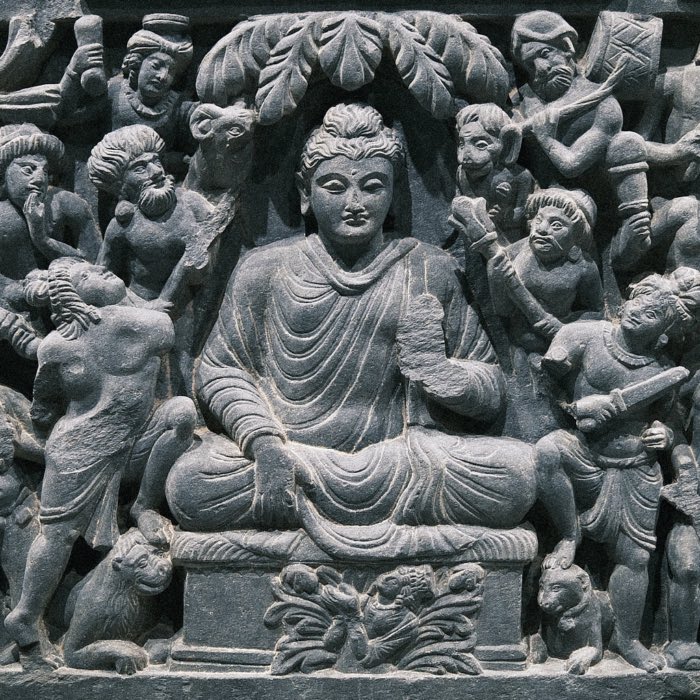Weekend Stories
I enjoy going exploring on weekends (mostly). Here is a collection of stories and photos I gather along the way. All posts are CC BY-NC-SA licensed unless otherwise stated. Feel free to share, remix, and adapt the content as long as you give appropriate credit and distribute your contributions under the same license.
diary · tags · RSS · Mastodon · flickr · simple view · grid view · page 13/51
Sīla – Buddhist ethics: The path of moral cultivation
Buddhist ethics can be understood as a comprehensive framework for moral, psychological, and existential development. Unlike many Western ethical systems, which are often based on divine commandments, social contracts, or utility calculations, Buddhist ethics is deeply rooted in the interdependent concepts of karma, intentionality (cetanā), wisdom (prajñā), and compassion (karuṇā). It emphasizes the gradual cultivation of character through sustained practice, the refinement of mental dispositions, and the experiential realization of impermanence (anicca), non-self (anattā), and dependent origination (paṭiccasamuppāda). Ethical conduct is not merely a matter of conforming to rules but arises naturally from the transformation of perception and volition. It serves as a foundation for calming the mind, minimizing suffering, dissolving the boundary between self and other, and progressing toward liberation from cyclic existence (saṃsāra). In this post, we explore the foundations of Buddhist ethics, its expression through frameworks like the Five Precepts, the Brahmavihāras, and the Bodhisattva ideal, and its relevance as a model for ethical living in both ancient and contemporary contexts.
The eight vijnanas: The Buddhist psychoanalysis
Among the many philosophical and psychological systems developed within Buddhism, the Yogācāra school of Mahayana Buddhism introduces one of the most elaborate models of consciousness. Central to this model is the concept of vijñāna, often translated as ‘consciousness’ or ‘cognitive awareness’. The Yogācāra framework identifies eight distinct forms of consciousness, each contributing to how beings perceive, interpret, and act within the world. This model serves both as a metaphysical explanation of the cognitive process and as a diagnostic system for identifying the roots of delusion (moha and suffering (dukkha). These eight vijñānas can be seen as the Buddhist counterpart to psychoanalysis, delineating layers of the mind and mechanisms of identity-formation, attachment, and transformation.
Karma and Samsara in Indian thought and Siddhartha’s revolutionary reinterpretation
Among the many contributions of Siddhartha Gautama to the Indian religious and philosophical landscape, his reconceptualization of karma and samsara stands out as one of the most radical. While these notions were already central to the spiritual worldview of his time, his reframing of them challenged deeply entrenched metaphysical assumptions and proposed a psychological and ethical framework that redefined what it means to be liberated. In this post, we explore the historical and doctrinal context of karma and samsara in Indian thought, and how Siddhartha’s reinterpretation transformed these concepts into a practical guide for understanding suffering and achieving liberation.
Sati: A historical and philosophical analysis of mindfulness in Buddhism
The concept of mindfulness has gained immense popularity in contemporary Western societies, often promoted as a secular practice for stress reduction, emotional regulation, and enhanced cognitive performance. While the modern notion of mindfulness is largely derived from Buddhist traditions, the term ‘mindfulness’ is a translation of the Pāli word sati, which occupies a more complex and multifaceted role within Buddhist thought and practice. In this post, we examine sati from a historical, philosophical, and doctrinal perspective, tracing its origins and development within Buddhist contexts, and critically analyze how it differs from or aligns with modern interpretations.
Prajñā: The wisdom of insight in Buddhism
Prajñā, often translated as ‘wisdom’ or ‘insight’, is a core concept in Buddhist philosophy. It refers to the direct understanding of reality as it is (tathatā), free from delusion and misperception (avidyā). This form of understanding is not limited to intellectual knowledge but is characterized by experiential clarity, often associated with meditation and ethical behavior. Within Buddhist traditions, this form of wisdom is considered essential for achieving liberation from suffering (dukkha). In this post, we explore the nature of Prajñā and its aspects in different Buddhist traditions, its role in the Noble Eightfold Path, and its link to compassion (karuṇā).
Avidyā: The Buddhist concept of ignorance
The concept of avidyā, commonly translated as ‘ignorance’ or ‘unawareness’, holds a central position in Buddhist philosophy. It is considered one of the primary causes of human suffering (dukkha). Far from denoting a simple lack of information, Avidyā is a specific type of existential misunderstanding: a deep-seated misapprehension of reality, particularly with regard to the nature of the self, the impermanence of phenomena, and the principles of causality. In this post, we explore avidyā as it appears in classical Buddhist thought, examine its psychological and philosophical implications, and consider how the notion diverges from Western understandings of ignorance or error.
Buddha-Nature (Tathāgatagarbha) and the process of awakening
In Mahāyāna Buddhism, the concept of Buddha-Nature (tathāgatagarbha) has long served as a powerful metaphor for the innate potential of all beings to awaken. It affirms something simple but profound: that we do not need to become something else in order to attain liberation. We only need to see clearly what is already the case. Yet what exactly is Buddha-Nature? Does it imply a hidden essence beneath our everyday consciousness? Is it a kind of eternal self, contradicting the Buddha’s teaching of anattā (non-self)? Or can it be understood in a way that harmonizes with the process-based, selfless ontology that runs throughout Buddhist thought? In this post, we explore these questions and clarify the meaning of Buddha-Nature in light of the core teachings of Buddhism.
Tathatā: Buddhism’s view on reality as it is
In the Buddhist tradition, few concepts are as subtle, elusive, and yet foundational as Tathatā, commonly translated as suchness, thusness, or thatness. At first glance, the term may seem abstract or even redundant, but it plays a profound role in both philosophical inquiry and spiritual practice within Buddhism — especially in Mahāyāna thought. Tathatā refers to the ultimate nature of things, perceived directly, unmediated by conceptual thinking, dualistic judgment, or emotional overlay. It is not a description of something particular, but rather the way things are in their bare, uncontrived being.
The Middle Way: The balance between extremes in Buddhist thought
The concept of the Middle Way (Majjhimā Paṭipadā) represents a central idea in Buddhist philosophy. It refers to a path of moderation that deliberately avoids the extremes of self-indulgence and self-mortification. Rather than a simple lifestyle recommendation, the Middle Way serves as a philosophical framework with implications for ethics, mental training, and epistemology in various Buddhist traditions. It is presented as the pathway toward the cessation of suffering (nibbāna). In this post, we take a closer look at the Middle Way, its historical roots, and its implications in Buddhist thought.
Meditation as the liberation from suffering
In the Buddhist tradition, meditation is not an isolated technique but the living heart of the path to liberation. It embodies the experiential core of the samādhi section of the Noble Eightfold Path — comprising right effort, right mindfulness (sati), and right concentration (samādhi) — and serves as the necessary foundation for the development of liberating insight (vipassanā). The task of Buddhist meditation is not merely to calm the mind but to transform the entire way we experience and respond to reality. This transformation unfolds through the interplay of two inseparable dimensions: calming meditation (samatha), which stabilizes attention and fosters inner stillness; and insight meditation (vipassanā), which investigates the impermanent, unsatisfactory, and selfless nature of all experience. Meditation is thus the bridge between Buddhist philosophy and lived understanding — where abstract teachings become concrete and embodied. In this post, we approach meditation not simply as a spiritual or psychological tool, but as a method for liberating the mind from its conditioned patterns. We explore how it addresses the fragmented nature of untrained consciousness, how it refines attention through deepening stages of absorption (jhāna), and how it opens the way to ethical transformation and wisdom. Meditation here is not just a practice — it is a reorientation of the entire self toward clarity, compassion, and freedom.









